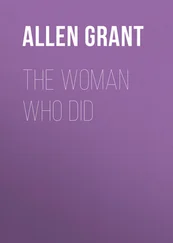All right, look, said Burnette. She’s not.
Not what?
Alive.
I don’t believe you, said Harrington.
Okay, all right. Have it your way.
Eville, we were friends. And Gerard was my friend. How did you get Gerard to lie to me?
I didn’t, Tom. Maybe she did.
You know what I do. You know I’m an investigator. You know I was brought in on the case.
No, I didn’t know that.
How about we dispense with bullshit, Top. Then one day I think I see the priest, St. Jean, in Miami, Little Haiti, and I’m right, it’s him, because it takes me a while but I finally track him down, and guess what he tells me, some wild fucking story about voodoo hijinks and Jackie faking her death.
Whatever you say.
Here’s what I say, Ev. I want you to do the right thing. I want you to sign an affidavit attesting to the fact she’s alive.
I can’t do that.
Top, there’s an innocent kid in a prison in Haiti indicted for her murder. He’ll rot away if we don’t do anything about it.
I didn’t put him there, said Burnette with cold fury. You did.
Tom slumped and bowed his head in remorse and looked up with plaintive eyes. You’re right, he said. I did. What the fuck, Ev. I don’t know what this is all about but help me out here.
Burnette said he had to get back and Tom said he had something to pass along to the undersecretary and Burnette snapped out of his numb drift toward wherever this news about Dottie’s grave was taking him, remembering his purpose here, the original deflection, was to confront Tom. Tom began to unlock the clasps on his briefcase and Eville asked him to stop and told him why.
What are you talking about? said Harrington, his lips tightening into a smile and when Burnette finished explaining his understanding of the situation, Harrington released an involuntary snort of laughter for which he quickly apologized, calling the notion of entrapping Steven Chambers a judicial fantasy. The tribunal doesn’t have the authority to subpoena an American diplomat, said Harrington. Man, I’d love to depose Chambers, the guy was like an enabler, a facilitator, the empire’s designated winker. He knows every bloody thing that happened here, he was a witness to the decision-making process responsible for serious violations of international humanitarian law. In other words, war crimes. He can talk with us if he wants, but I don’t see that happening, do you? Anyway, Top, Harrington said as he opened the briefcase and removed a manila envelope, will you pass this along to Chambers, Kovacevic, whatever name he uses. I imagine he’ll appreciate it.
He attempted to hand the envelope to Burnette, who wouldn’t accept it so readily. What’s in it? Burnette said.
Something of Jackie’s. Here, take it, come on. Look inside if you don’t trust me, he said shrewdly while Burnette’s suspicious fingers worked to unseal the flap. If you would give that to her father. Or, you know, return it to Jackie if you happen to bump into her.
What Burnette intended as a cursory glance into the envelope’s mouth became a hopeless stare at the triple strands of Dottie’s Turkish bracelet, its blue-eyed insistence against evil, and he stood riveted and speechless, finally nudging his sunglasses down over his eyes to leave only the quiver of his jaw exposed, his emotions contorted by knife-stabs of gratitude penetrating a sense of powerlessness and defeat, the fresh tearing away of the unexpected chance with Dottie, the entire affair the most provisional, unreliable arrangement but the chance had been there nevertheless, tangible and true and lost, and telling himself he had been wrong to want it hadn’t gotten him very far. Here was her bracelet; for him, that was its message.
God, I’m sorry, Ev, but — Tom said, unable to complete the thought. She’s really dead, isn’t she?
He paused to collect himself in the narthex, cajole and kick himself into the psychic transition away from the sudden great weariness he felt, leaning back against a wall and closing his eyes for a moment, walking down the storm-swept beach hand in hand with Dottie, his hands about their own quick business here in Zagreb, transferring the bracelet to his trouser pocket, holding it as his palm turned sweaty around its glass beads, tossing the envelope into a waste basket. He heard the voice, faraway but amplified, of eulogy. Then the ear voice of Crow saying Burn, where are you? Steve-o on the move. Where’s he going? Burnette asked. Where are you? The whatchacallit, the pulpit, said Crow. It’s like halftime. Looks like he’s going to speak. Roger that, said Burnette. Where are you? and Scarecrow told him he was in the aisle on the right side of the altar and Eville said he was coming.
Vasich’s security men fixed him with hard looks as he stepped into the pillared cavern of the nave. He removed his sunglasses while his clearance was double-checked and he noticed the woman from behind the press cordon who had stood with her clipboard between Tom and the cameraman, arguing in hushed tones with one of Vasich’s people. He couldn’t see the undersecretary but his voice began to echo from within the slanted light at the far end of the nave, and he went over and requisitioned the woman, whispering to the guard, She’s with me. Why? she whispered back, recoiling nervously. He asked her if she spoke English and she said yes. Croatian? Yes. She looked at him more closely, with suspicion, and said, Where is Tom? and he told her Tom was outside, Tom was fine, and he asked her to do him a favor. Will you translate for me? Translate what? The man who’s speaking. Kovacevic? she said. Please, said Burnette, I want to know what he’s saying. Ah, said the woman, I see. Yes, I will help you if you will help me. I’ll try, said Burnette. That’s all I can promise.
They moved quietly to the right, to the top of the side aisle, slowly making their way toward the front of the hall, the woman whispering in his ear, He is talking about when he was a child, meeting Starevica when he was a boy, how Starevica was a second father. He says his own father was killed in the world war. Burnette’s eyes wandered over the congregation packed into the rows of pews, his vision floating upward into the cold vastness of sacred space, feeling an uneasy awe. Now Kovacevic is talking about our war. He says our divine struggle, on heaven’s behalf. He is saying some good things about our army and our leaders and about Starevica. Patriotic things. The thin scent of frankincense began to mix with the pungency of garlic on the woman’s breath and the stony breath of the cathedral, itself a source of an unfathomable oppression bearing down on him, an intersection of vanities and ingenuity and aspirations meant, he understood this, to signify mankind’s relationship with the cosmos, but the cathedral’s power was immodest, its inspiration a wash between faith and fear, more fissure than connection, more arrogance than humility, or so he felt. Halfway down the aisle, she paused, her brow wrinkling as she listened, and he waited for her to proceed and she was whispering again as they tiptoed ahead. Now he is saying strong things. Kovacevic says history will never forgive us if we stop now. God Almighty will never forgive us. He had stood on glacial moraines before, staring at ice fields cracking with a deep interior fracturing sound, hearing the stress of the planet, and he had staggered to the top of inhospitable wind-blasted summits only to experience this same sense of human insignificance. He is making recrimination against the Muslims. We must not allow the Turks to pass through this door, a door, of atrocity that has been thrown open by Satan. Like you, Kovacevic says, I want peace in the world and I will fight for it and for Christ. He had not lived the type of life that offered a familiarity with cathedrals, the soaring majesty that was not barrenness but the abstract made amazingly concrete and the sacred made sarcophagal, a bell jar containing a millennium’s worth of anguished spirits. He is making provocations. He says when the mujos tell us they will drink our blood we will sew their mouths closed with barbed wire. Burnette thought maybe it was his upbringing, a boy from a ranch in Montana unaccustomed to the monumental grandeur of mankind’s achievements, his unworldliness never a liability on any mission but here he felt it as a flaw, a complication to his sense of reverence.
Читать дальше












